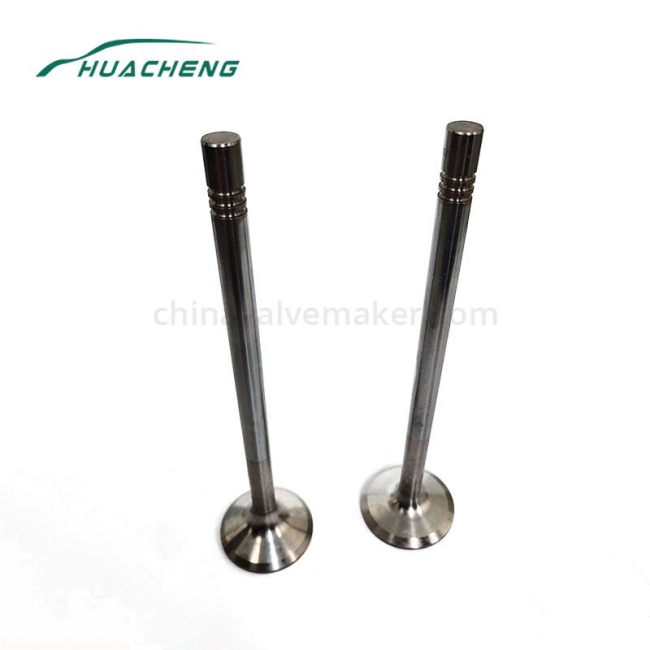The difference between a diesel engine and a gasoline engine
1. Method of ignition
The diesel engine uses a compression stroke to compress the mixture of fuel and air to increase the temperature, reach its ignition point and burn to achieve the purpose of ignition and combustion, without the need for a spark plug.
The gasoline engine uses the electronic igniter above the fuel injection nozzle to generate electric sparks, which ignites the gasoline to achieve the purpose of ignition and combustion. Requires auxiliary electrical components. Our company provides a diesel engine valve.
2. Fuel consumption
Compared with gasoline, diesel has higher power, higher ignition point, and less volatility. Because of these characteristics, diesel engines have a 30% higher fuel economy than gasoline engines. That is to say, the same model, under the same driving conditions, assuming that the fuel consumption of gasoline vehicles is 10L, then the fuel consumption of diesel vehicles is about 7L.
3. Acceleration
The working principle of the diesel engine is not to ignite but to compress the combustible gas mixture and let it spontaneously ignite when it reaches the ignition point. Then this process is slower than the ignition of the gasoline engine. When converting energy into speed, it is correspondingly slower than the gasoline engine. Therefore, under the same circumstances, the acceleration of diesel cars is slower than that of gasoline engines.
4. Noise
Due to the different mechanical working principles of the gasoline engine and the diesel engine, the compression ignition mode of the diesel car makes the diesel car compress ignition to a certain degree before it can emit power, so its explosion sound will be louder. In actual driving, the noise of a diesel car engine is clearly felt greater than that of a gasoline car.

The advantages and disadvantages of diesel engines and gasoline engines
Advantages and disadvantages of diesel engines
Advantages: Diesel engines have a long life and are economical and durable. Due to the absence of an ignition system and a few auxiliary appliances, the failure rate of diesel engines is far lower than that of gasoline engines. In addition, although diesel engines are inferior to gasoline engines at high speeds, they have greater torque at low speeds and are superior to gasoline engines in complex roads, climbs, and loads.
Disadvantages: high noise, high manufacturing costs, and difficulty in starting. The audience of diesel engines in China is still relatively small, generally loaded on some trucks or trucks.
Advantages and disadvantages of gasoline engines
Advantages: high popularity, generally lower noise than diesel engines, and higher power. Gasoline engines are our most common engines. Generally, family cars are loaded with gasoline engines, and it is also convenient to refuel and maintain.
Disadvantages: high fuel consumption and low torque. Generally, a grade of a gasoline car is about 25-30% waste oil than diesel cars, and the torque of gasoline cars is generally 30%-40% less than diesel cars. Climbing uphill, overtaking planing, torque is the most important.
The above information is provided by diesel engine intake valve manufacturer.